myHIN Blog

August 18, 2013
Black Women’s Love Affair with Hair
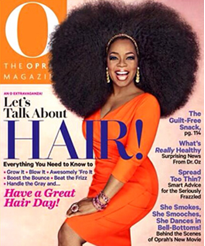
Black women’s hair is a miraculous thing! Naturalistas sporting fabulous afros, twists, plats, braids, and locs. Bold sistahs rocking close-cut fades and TWAs. Sophisticated ladies wearing sleek perms, extensions, and weaves. Long or short, kinky or straight, black hair don’t care. To keep our diverse hairstyles tight, Black women spent nearly half a trillion dollars on hair care in 2011! Oprah Winfrey rocks a fierce, 3lb afro wig on the cover of her August 2013 magazine’s issue on hair.
This is part of a long tradition of Black women’s love affair with their hair. In the early 1900’s, Sara Breedlove, popularly known as Madam C.J. Walker, became the first female self-made millionaire in America. She amassed her fortune inventing wildly popular African American hair care and cosmetic products. Her company also trained sales beauticians known as “Walker Agents” who went out into Black communities and promoted Walker’s philosophy of “cleanliness and loveliness”.
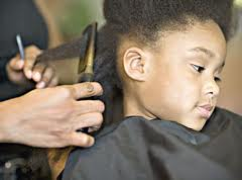
Today, changing hair is simply a fashion statement for some Black women. Just like changing clothes, we can wear a curly fro on Monday and slick our hair back into a bun on Tuesday. This styling versatility is a hallmark of black women’s beauty, and learning how to care for our hair is an important cultural practice. Many of us have fond (and not so fond) memories of having our hair wash, detangled, braided, pressed, and otherwise cared for by our mothers, aunties, grandmas and girl friends. Hair straightening was a rite of passage for most Black women. While younger women know all about the flat iron, those of us from the old school will recall getting our hair straightened (and ears singed) with lots of grease and a sizzling hot comb in the kitchen. Yet, we all remember those trips to the beauty salon where we listened in amazement as to the grown folks talked while we got our hair done.
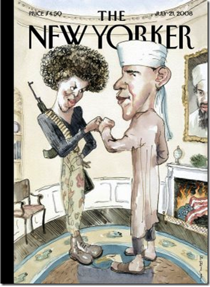 Black women may also style their hair for purely functional purposes. Perhaps we splurge and get long silky extensions for a formal affair like our sister’s wedding. Or in the summer time, we may wear hassle-free microbraids for a vacation at the beach. When we are short on time or have to meet the demands of work or school, perhaps we go in for “the big chop” or loc our hair to achieve an easier to maintain style that reduces or even eliminates trips in the beauty salon. With the growing natural hair movement, some black women are asking if we are seeing the end of the Black beauty salon culture.
Black women may also style their hair for purely functional purposes. Perhaps we splurge and get long silky extensions for a formal affair like our sister’s wedding. Or in the summer time, we may wear hassle-free microbraids for a vacation at the beach. When we are short on time or have to meet the demands of work or school, perhaps we go in for “the big chop” or loc our hair to achieve an easier to maintain style that reduces or even eliminates trips in the beauty salon. With the growing natural hair movement, some black women are asking if we are seeing the end of the Black beauty salon culture.
Sometime we style our hair in its natural state as self-affirming statement of racial and cultural pride, for ease of maintenance, or as a healthy choice. However, even as more women choose to where their hair naturally, it is still largely seen as socially unacceptable.
Even the FLOTUS can’t escape public scrutiny of her hair choices. One of my favorite online comment: "Girl, ain't no braids, twists, afros, etc. getting into the White House just yet ... LOL." Ya’ll remember the New Yorker cover that depicted Michelle with an afro and a rifle? When a naturallycurly.com web poll asked if the U.S. was ready for a first lady with natural kinky hair, 56% of respondents said “no”. Indeed, Michelle Obama’s hair carries a lot of cultural baggage.
So here we are in 2013 and Black women’s hair remains politicized! Sistahs on the job market still wonder aloud if the texture or style of their natural hair will prevent them from being hired. Only women with long silky hair need apply? Sistahs are also being told by Glamour magazine that “political” hairstyles like locs and afros are considered inappropriate in some places of work. Rhonda Lee, a Black female meteorologist, was fired from her job on a Louisiana TV station after publicly defending her ethnic hair. Black women, including Solange Knowles, have had TSA security guards demand to search their natural hair before boarding the plane. (I’ve also had my own “flying while naturally Black” experience when I had my locs in an up-do while boarding an airplane). Incidents such as these inspired MSNBC correspondent Melissa Harris-Perry devoted a 3-minute “teachable moment” segment and panel discussions on the politics of Black hair.
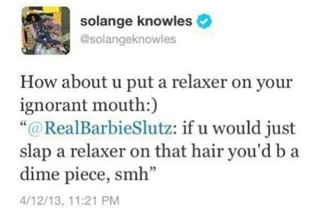 When Black women choose to maintain their hair naturally, they get cultural pushback. Strangers will literally come up to you and ask, “Can I touch your hair?” Sometimes they will even disregard your personhood and just touch your hair. People will also criticize you for having “nappy hair” and feel like they have the right to tell you to change your look. Just ask Solange Knowles, who had to call out this nonsense in a Twitter exchange. People with no couth may even ask if your hair is real if you have grown long hair because they are accustomed to the notion that Black women wear weaves and fake hair pieces.
When Black women choose to maintain their hair naturally, they get cultural pushback. Strangers will literally come up to you and ask, “Can I touch your hair?” Sometimes they will even disregard your personhood and just touch your hair. People will also criticize you for having “nappy hair” and feel like they have the right to tell you to change your look. Just ask Solange Knowles, who had to call out this nonsense in a Twitter exchange. People with no couth may even ask if your hair is real if you have grown long hair because they are accustomed to the notion that Black women wear weaves and fake hair pieces.
Black women with chemically relaxed and straightened hair also experience cultural abuse. They are criticized for trying to “look white”, taking the easy road, or conforming to a white aesthetic. Chris Rock and HBO films produced the documentary "Good Hair” in 2006 to explore why Black women hold straight long hair as the prevailing beauty ideal. Four years later, Tyra Banks makes national news when she announces on Twitter that she is going weaveless during the next season of America’s Next Top Model. Permed hair and weaves are waning in popularity as a growing number of Black women transition to natural hair styles.
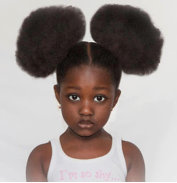 These types of cultural push back take a toll on all of us. Hair does not mean the same thing to white women as it does to Black women. For us, the cultural weight and social value of straight hair is very strong. Mental health experts routinely counsel Black women on hair issues that negatively impact self-esteem and body image. Black women can find strength and support by engaging with one of the many online communities devoted to Black women’s hair. Madam Noire offers a list of hair blogs for natural sistahs who need support. Also be sure to read through the comments for additional recommendations. Check out Tumblr and Pinterest as sources for inspirational images and videos. A simple search on YouTube will get you connected to “how to” videos on twist outs, transitioning from relaxed to natural hair, Marley braids, wash-n-go styles, bantu knots, straightening hair without heat, and a many other styling techniques. You can also direct your culturally uninformed coworkers and friends to CNN’s natural black hair etiquette guide on its website.
These types of cultural push back take a toll on all of us. Hair does not mean the same thing to white women as it does to Black women. For us, the cultural weight and social value of straight hair is very strong. Mental health experts routinely counsel Black women on hair issues that negatively impact self-esteem and body image. Black women can find strength and support by engaging with one of the many online communities devoted to Black women’s hair. Madam Noire offers a list of hair blogs for natural sistahs who need support. Also be sure to read through the comments for additional recommendations. Check out Tumblr and Pinterest as sources for inspirational images and videos. A simple search on YouTube will get you connected to “how to” videos on twist outs, transitioning from relaxed to natural hair, Marley braids, wash-n-go styles, bantu knots, straightening hair without heat, and a many other styling techniques. You can also direct your culturally uninformed coworkers and friends to CNN’s natural black hair etiquette guide on its website.
Sadly, our baby girls also face these hair and self-esteem issues. Just this year, for instance, there was an incident where a school in Ohio attempted to ban afro puffs and small twisted braids. If you’re in need of support, Sesame Street produced a much talked about song, “I love my hair”, to help young Black girls feel positive about their hair. And Amazon.com has a list of Black children’s hair books available for purchase. There are also blogs, YouTube channels and other websites devoted to caring for Black girl’s hair.
Whether you’re curly, kinky, loc’d, or straight, it’s all good hair sistahs!
Follow us at tumblr.myhealthimpactnetwork.org (Tumblr)
Follow us on Twitter @myhealthimpact
Share
Comments
comments powered by DisqusIn Partnership with: Poole College of Management, College of Humanities and Social Sciences, National Science Foundation, Penn State
Take Action, Get Tested: Find Your Local Testing Center Why Get Tested?
